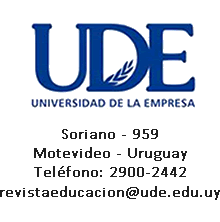Evaluation ofan instrument to examine university students in knowledge of statistics
DOI:
https://doi.org/10.48163/rseus.2022.10111-27Keywords:
evaluación; cuestionario, estadística; modelos de ecuaciones estructurales.Abstract
In the teaching and learning processes, a relevant aspect is the evaluation of the student, with innovative strategies that aim to obtain quality instruments. In the present work it is intended to verify the degree of difficulty and discrimination capacity of the questions that examine the students in the knowledge acquired in statistics, through a virtual evaluation with technological means. For this, a test with 21 questions on Statistical Inference was constructed and it was implemented in 124 students of a Statistics course at the Faculty of Economic Sciences of the National University of Córdoba, Argentina. Through an item response model (IRT), with binary response variables, to measure the knowledge acquired in the statistics course, the relationship of each question in the questionnaire with the latent trait (knowledge of statistics) was analyzed and determined the degree of difficulty and discrimination of each of the questions. The results indicate that those questions that contribute to the construct, that have medium difficulty and that are the ones that most discriminate between the student body can be retained in the questionnaire, since they also allow the development of other capacities that must also be learned, while those non-significant questions or very easy and that do not discriminate can be replaced in order to obtain better assessment instruments to achieve the learning objectives. This experience is extremely useful in the context of a pandemic where the assessment went from face-to-face to virtual.
Downloads
Additional Files
Published
How to Cite
Issue
Section
License
Copyright (c) 2022 Norma Patricia Caro

This work is licensed under a Creative Commons Attribution 4.0 International License.
Política para revistas de acceso abierto
Los autores/as que publiquen en esta revista aceptan las siguientes condiciones:
a. Los autores/as conservan los derechos de autor y ceden a la revista el derecho de la primera publicación, con el trabajo registrado con la licencia de atribución de Creative Commons (CC-BY), que permite a terceros utilizar lo publicado siempre que mencionen la autoría del trabajo y a la primera publicación en esta revista.
b. Los autores/as pueden realizar otros acuerdos contractuales independientes y adicionales para la distribución no exclusiva de la versión del artículo publicado en esta revista (p. ej., incluirlo en un repositorio institucional o publicarlo en un libro) siempre que indiquen claramente que el trabajo se publicó por primera vez en esta revista.






















